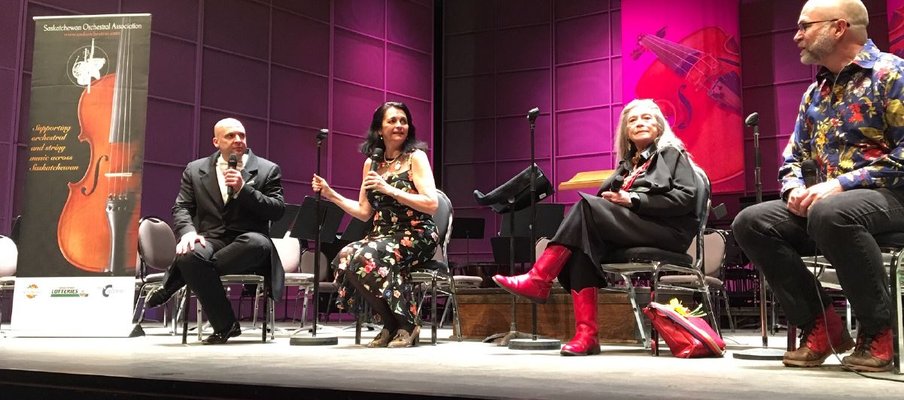Orchestras are for Everybody: SOA Moves Forward with Diversity Plans

Last year, Saskatchewan Orchestral Association (SOA) launched its “Orchestras Are For Everybody” initiative, building on the national declaration of IDEA= Inclusivity, Diversity, Equity and Accessibility, as key to the orchestral experience. Along with developing a resource kit, the SOA reached out to key partners to help increase dialogue and build connections with diverse audiences. Together, these initiatives form the foundation for SOA’s diversity planning.
According to Elaine Kaloustian, executive director, SOA, “the process began when the SOA initiated discussions that lead to an ongoing partnership with the Multicultural Council of Saskatchewan and the Regina Symphony Orchestra to support diversity initiatives.” Together, these partners planned various activities in connection with the RSO presentation of South Pacific in March 2018, which included: a presentation by ethnomusicologist Daya Madhur, an original spoken word performance by students from Wascana Plains School, relevant musical selections from South Pacific and a public dialogue session on March 21st (the International Day for the Elimination of Racism) and a pre-concert presentation by Daya Madhur and representatives from Chilean, Ugandan, and Indigenous communities on March 24th.
“This year,” she notes, “the programming was held in association with the RSO concert performance and world premiere of the opera Riel’s Heart of the North,” held March 9, 2019. Riel’s Heart of the North, by Métis poet and librettist Dr. Suzanne Steele and composer Neil Weisensel was dedicated to reconciliation and truth. Performed in Michif, Saulteaux, English and French, it explores a little-known chapter in Louis Riel’s life and focuses on the beauty and love of the homeland and its Métis people, the heart of the north.
The partners hosted a ‘community conversation’ held both before and, for the first time ever for the RSO, on stage following the concert, facilitated by RSO Artistic Director Gordon Gerrard, and featuring Weisensal, Steele and Elder Rose Richardson.
Most recently, SOA has wanted to develop new opportunities for increasing the reach of orchestral music in northern Saskatchewan.
“This past year, we brought Saskatoon musician Kim de Laforest in as a keynote speaker at our AGM,” explains Kaloustian. “to share her experiences of engaging youth from Nunavut in learning the fiddle as part of her work with the Tusarnaarniq Sivumut Association’s Music for the Future program.” During her address, de Laforest spoke to SOA members about her experience in the north, along with the power of music as a positive force for diversity and for transformative life experiences.
“We are interested in how her work with the youth in Nunavut, might work in communities in northern Saskatchewan,’” explains Kaloustian, who also brings her past experience in northern governance and development to this endeavor. Reaching the north will be one of the considerations as SOA moves forward on updating its diversity planning work this fall.
Kaloustian also points out that the SOA supports a wide range of diverse communities through its project grants to community orchestras, as well as partnering with Saskatchewan Choral Federation, Saskatchewan Band Association, and Saskatchewan Music Educators Association on the Saskatchewan Music Alliance Summer Music Camp, held in conjunction with the Dream Brokers programs in Regina, Saskatoon, Prince Albert, Yorkton and North Battleford. These popular summer music camps, which receive additional support from
SaskCulture/Saskatchewan Lotteries and the Community Initiatives Fund, are aimed at reaching a diverse mix of inner-city youth, who may not have access to regular music programming.

